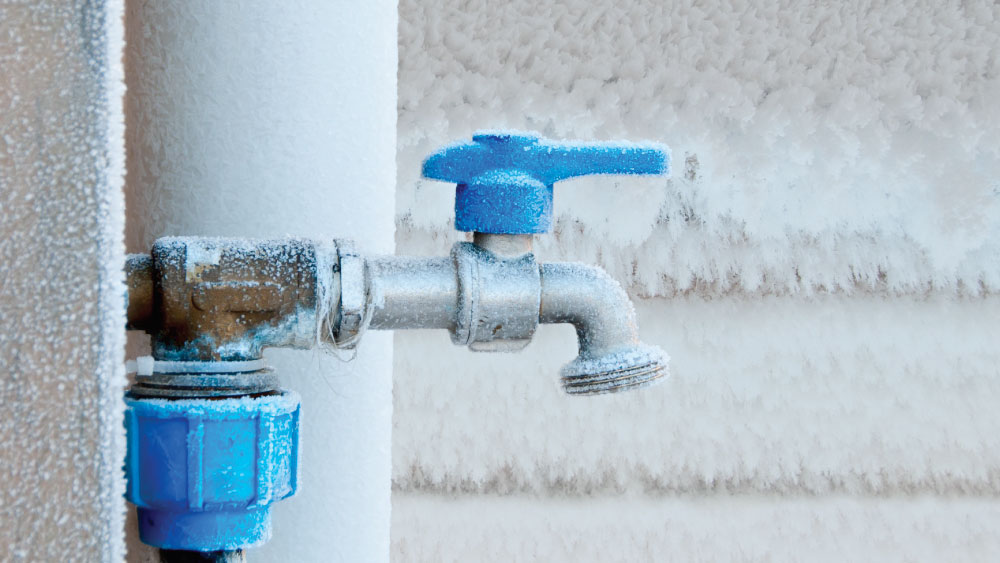
The damages, expenses and mess that is caused when a water line freezes and bursts are nothing that anyone wants to experience. Mid-Atlantic plumbing companies start dealing with the implications of cold weather as soon as the temperatures begin to drop. Many customers ask us, “Why did this happen?!”
The basic answer is that the water coming in to the house from outside is much colder than it was during the summer months. This colder water causes your pipes to contract, which weakens the material. Whether your plumbing system uses copper pipes or a PVC variant, frozen pipes can still cause huge damages and headaches.
Since these bursts are caused by water coming from outside your home, there is little you can do to stop freezing pipes when they're happening. You can, however, take steps to prevent this freezing from occurring in the first place. Our advice is to be mindful of your plumbing system as the temperatures change and check to see if you have any leaks as soon as possible. Use some of these helpful hints to minimize your risk of a frozen or burst pipe:
1. If it is extremely cold outside, keep one or two faucets running slowly at all times. Water moving through the your pipes will not settle in one place and freeze.
2. The pipes that freeze are often located near an outside wall or a window, so be sure to direct warm air to any colder areas of your home. Start in your basement and look for any pipes near the exterior of the home.
3. If your kitchen sink is on an outside wall (it usually is), be sure to leave cabinet doors open to allow warm air into the cabinet. Your kitchen faucet is usually a good faucet to leave on during extremely cold weather.
4. Be sure to disconnect your hose from the outside faucet. If you leave your hose connected, water is not able to drain out of your hose bib and will likely freeze and damage your faucet.
5. There is a product called heat tape that can be installed directly on pipes. This tape will warm pipes as needed during cold weather. Even though this tape is not difficult to install, it is important to place it in the correct locations in your plumbing system. For more information, contact a Warner Service plumber.
6. Seal leaks that allow cold air into your home where pipes are located. Look for air leaks around and in electrical wiring/outlets, dryer vents, and pipes. Use caulk or insulation to keep the cold out. With severe cold, even a tiny opening can let in enough cold air to cause a pipe to freeze.
If you still have concerns about your system, call a licensed plumber to have them to come to your home and help prevent your pipes from freezing. Warner Service is available and happy to answer your questions.


